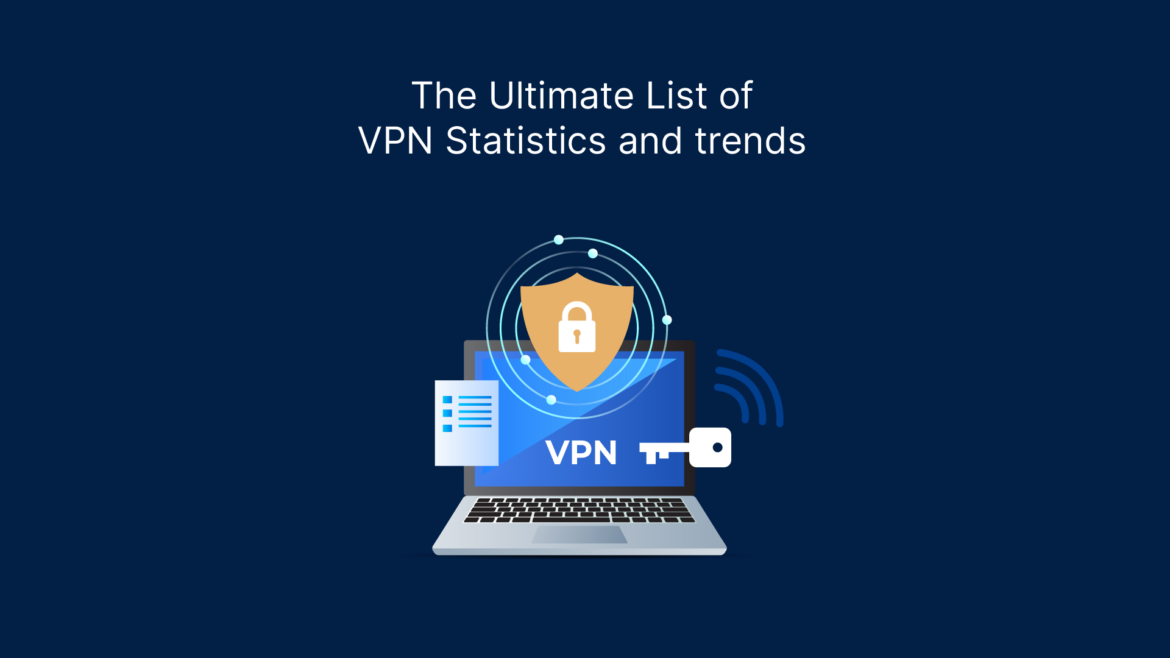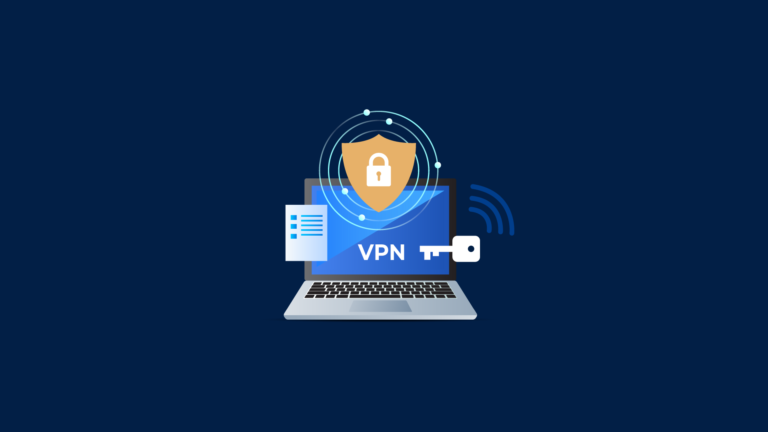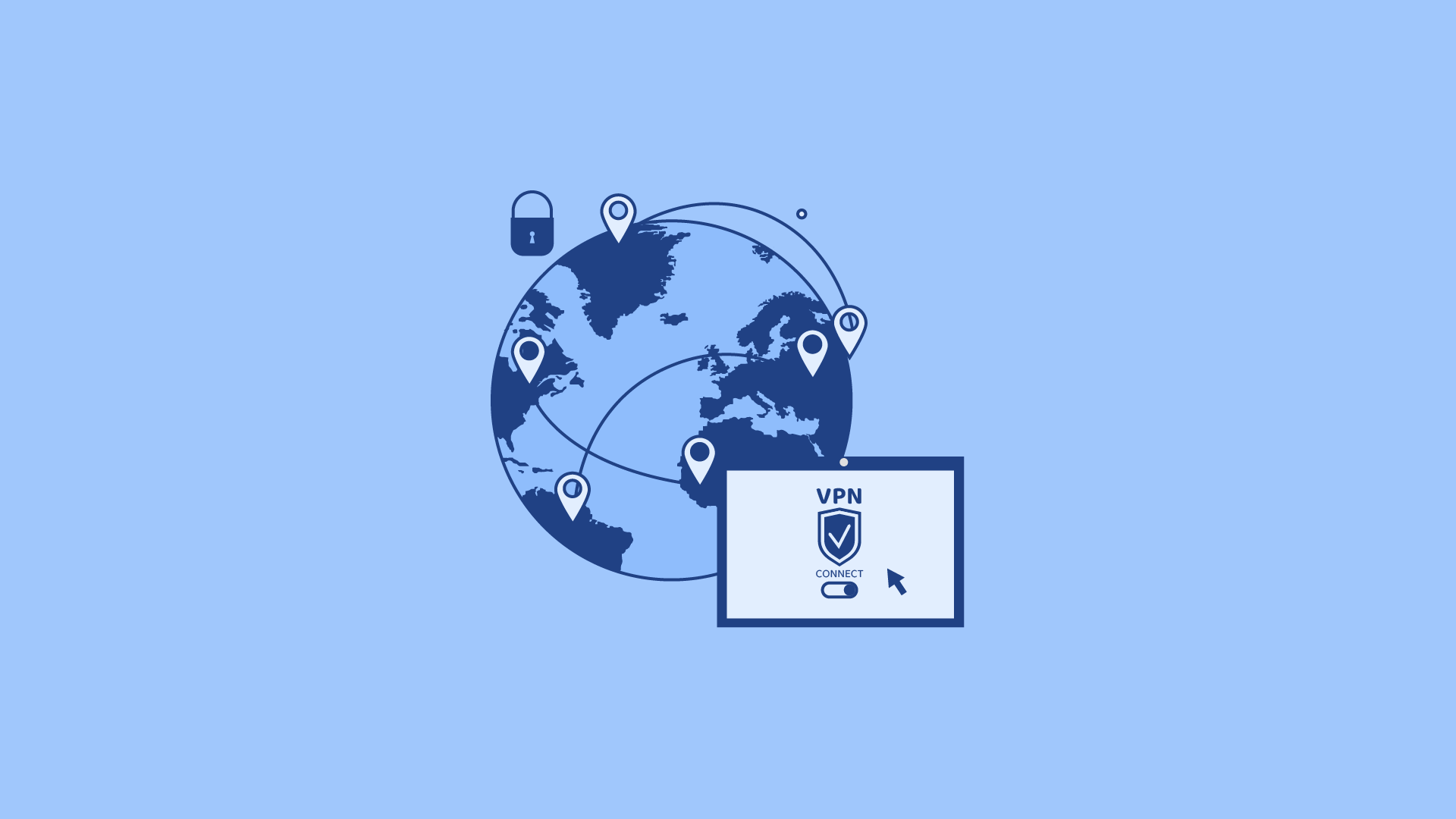|
Getting your Trinity Audio player ready...
|
VPNs are a fast-growing technology that has become an essential tool for people to protect their privacy online. A VPN is a great way to protect your privacy online. It simply encrypts your internet connection and provides the needed layer of security for you to browse the web safely and anonymously.
This industry has boomed so much in just a few years, and there's no sign that it is slowing down. The best VPNs in the world are being constantly developed by some of the most creative minds, offering features that make them unique from one another.
While you can use any Virtual Private Network service provider that suits your needs, there are a few important stats and trends you should know before jumping into VPN usage. To help you learn more about it, I've gathered all the latest trends and statistics in this Ultimate List.

Our Top 10 Pick for VPN Statistics and Trends
- More than 31% of internet users worldwide use a VPN service.
- Around 62% of all VPN users are male according to Statista.
- More than 56% of all VPN users access Netflix each month.
- About 39% of VPN users are between the ages of 16 and 24.
- 43% of people globally feel that they lack control over their personal information.
- VPN usage increased by 27.1% in 2020 alone.
- It is projected that by 2027 the VPN marketplace will reach a value of $107.5 billion.
- About 88% of companies migrated employees to remote work in 2020, raising demand for VPNs.
- In 2018, 25% of internet users used a VPN on average.
- The top market for VPN usage in 2021 was Indonesia, with 44% of people using a VPN.
1. Close to 90% of all VPN services are offered by companies founded after 2005
Before 2005 not many people were concerned about internet security. As the internet became more and more advanced it created more opportunities and room for new products. In the early days, VPN was only used by IT professionals who needed to connect remotely to their company network. Today, millions of consumers around the globe use VPNs regularly.
2. More than 50% of all VPN users use it to protect their privacy on public Wi-Fi.
You might already know that using public WIFI without a VPN connection exposes you to potential security risks. This is why more than half of VPN users use it to protect their privacy when on public WIFI. It does not however take away the fact that even when you connect to a secure network, you can still get exposed to malware. So you can use it in either case.
3. About 47% of VPN Users use it when traveling overseas.
Using a VPN service is essential when you travel overseas. In fact, some countries even ban VPN usage altogether. When you use a VPN overseas, you can surf anonymously, secure your personal information from hackers, and get around geo-restrictions. Today, close to half of VPN users use it when traveling abroad.
4. By 2026 the global VPN market will reach over $90 billion and in 2027 it is expected to be worth $107.5 billion.
VPNs are becoming increasingly important because they allow us to bypass restrictions imposed by governments and companies. They also provide anonymity, security, and privacy. In addition, VPNs are now offered by various providers at very competitive prices. The industry continues to boom as more and more people get online. In 2019 the global VPN market was only valued at $25 billion and an estimated $44.6 billion in 2022.
5. About 68% of American adults use a VPN for personal or work use.
VPNs are widely used by businesses and individuals who want to secure their data and stay anonymous online. They also offer privacy protection for those who live in countries where free speech isn’t protected. More than half of Americans use VPNs for personal reasons, such as accessing Netflix outside of the country and at work.
6. More than 77% of all VPN users buy digital content each month.
Research shows that of the VPN users who pay for digital content, some do it to download music, and others purchase streaming services and mobile apps. The reasons behind this could be that they are trying to access sites that would otherwise restrict them from making a purchase due to geological restrictions.
7. Desktop computers are the most used device for VPNs.
Desktop computers are the most used device for VPNs. According to StatCounter, more than 60% of all users access their VPN through a desktop computer. Mobile devices are also popular, with over 40% of users accessing their VPN from smartphones or tablets. Although smartphones and tablets aren’t as popular as desktop computers and laptops, they have seen a significant rise in use over recent years.
8. More than 56% of all VPN users access Netflix each month.
More than 56% of all VPN users access Netflix each month. The number is growing every year and shows no signs of slowing down. According to research conducted by Sandvine, more than 56 percent of all North American households with broadband connections have a Netflix subscription. In fact, nearly half of all North American households with broadband connections watch video content on Netflix every day or multiple times per week.
Sources: Statista, Earth Web, DataPort, security.org
Frequently Asked Questions: VPN Statistics
How many people use VPNs in 2021?
In 2023, out of over 5 billion internet users around 31% of them (1.6 billion) use VPNS. This is about 1 fifth of the population of the world. About 62% of VPN uses are male.
How many people in the United States use a VPN?
According to a report by Security.org1, two in three internet-going Americans have used a VPN at some point. That's a total of 142 million VPN users in the U.S. alone, though the current number of active users is much smaller, at around 38 million.
How effective is a VPN?
Using a reliable virtual private network can be a safe way to browse the internet. VPN security can protect from IP and encrypt internet history and is increasingly being used to prevent snooping by government agencies. However, VPNs won't be able to keep you safe in all scenarios.
Can VPN be hacked?
Their success comes from a combination of technical trickery, computing power, cheating, court orders, and behind-the-scenes persuasion. VPNs can be hacked, but it's hard to do so. Furthermore, the chances of being hacked without a VPN are significantly greater than being hacked with one
What does a VPN not hide?
What doesn't a VPN hide? A VPN doesn't hide your activity from online registered accounts. Anyone can still see your social media shares, posts, and pictures. A VPN is different from antivirus software; while it boosts your online security, it doesn't protect you from cyberattacks.
Which country has the highest VPN?
Switzerland is by far the safest country to connect to. Its constitution guarantees the right to privacy, and there are strict laws and regulations to protect personal data.



